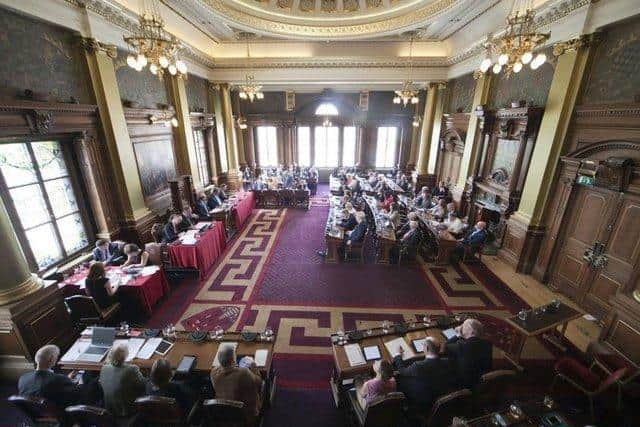Role models of ‘white middle-class males’ in Scotland’s councils do not encourage diversity in local government
Speaking to Holyrood’s Local Government, Housing and Planning Committee, Councillor Alison Evison, chair of COSLA, the umbrella group for local authorities, said that there were numerous barriers stopping people – especially those from minority groups – from standing for local office.
She said remuneration for councillors worked out to below minimum wage when the amount of hours required to do the job were taken into account and warned that a lack of diversity in Scottish politics - including in Holyrood – in recent years, had not boosted interest from women or ethnic minority groups. In 2019, only 29 per cent of councillors in Scotland were women.
Advertisement
Hide AdAdvertisement
Hide AdShe said: “If you look at look at that picture staring down at you in town halls, they’re male, they’re white middle class males staring down at you, that you haven't got that that sense of a role model, that sense of ‘I could be there. I could do that too’. And I think those of us in elected office now appreciate our responsibility to create those role models to show the images of people and to show that the difference that can be made.


"Over the last 20 years, we've had such a mammoth change to do and it's not just in local government, obviously. Until these recent elections, diversity was was was not so obvious in the Scottish Parliament either. I know there's been rapid improvements this year, but that is very recent.”
She said that while the main parties worked to try to increase diversity, people who wanted to stand as independent candidates did not have the same level of support. Around 14 per cent of councillors in Scotland are independent.
Cllr Evison said: “Emphasis on parties and what they're doing is important, but we need to widen perspective, because there are some people who want to serve their local communities by becoming democratically elected, to be that voice of lived experience, who just won’t stand for a party. And I think we mustn't in this conversation, miss out a huge contribution that they can make.”
MSP Elena Whitham said that she had experienced online abuse during her time as a councillor.
She said: “I myself, have been subjected to some online abuse as a counsellor, which has proven so far to be significant more than the online abuse I've experienced so far as a parliamentarian.”
Cllr Evison said that COSLA had developed a set of rules for engagement on social media for councillors.
Laura Hutchison, principal of the compliance team Scotland at the Equality and Human Rights Commission Scotland, said there needs to be a “zero tolerance approach”.
Advertisement
Hide AdAdvertisement
Hide AdShe said: “We have seen, over the years, some examples of political parties supporting their party members who have been subjected to abuse, but more needs to be done at party and council level to work out what they can do to really make a visible difference so that's not just words on paper, and it's actually actions and practice.”
A message from the Editor:
Thank you for reading this article. We're more reliant on your support than ever as the shift in consumer habits brought about by Coronavirus impacts our advertisers.
If you haven't already, please consider supporting our trusted, fact-checked journalism by taking out a digital subscription.
Comments
Want to join the conversation? Please or to comment on this article.
